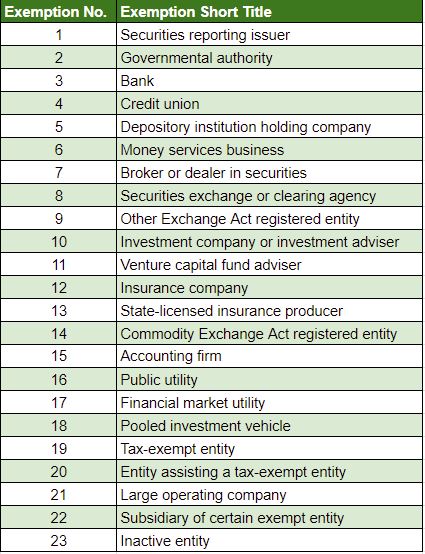As the name implies, the Corporate Transparency Act of 2021 (“CTA”) is intended to crack down on the ability of people and companies, foreign and domestic, to hide their conduct from regulators and law enforcement officials. That goal is laudable and takes a clear step toward a future with less fraud and fewer financial crimes. In pursuit of that goal, however, every business will need to provide the government with significant information to enable better oversight. If you own a business and do not take the proper action in 2024, you or your business could face significant, daily fines starting January 1, 2025.

Attorney Andrew Adams provides insights into the Corporate Transparency Act and outlines essential information for businesses to navigate and comply with in 2024.
Every business entity will be required to report information about its owners to the US Department of the Treasury’s Financial Crimes Enforcement Network (“FinCEN”) unless an exception to the CTA exists for that business or those owners. A cautious approach dictates that business owners should expect that their business will be affected and find that it is not affected, rather than expecting to find an exemption. The categories of exemptions are limited to the following:

(Small Entity Compliance Guide, Financial Crimes Enforcement Network, US Department of the Treasury, Version 1.0, 4 (Sept. 2023)[1].) Many small businesses will not fit any of the exemptions.
The main information businesses must report is “Beneficial Owner Information”. A beneficial owner of a reporting company is a person or entity who has substantial control over the company or that controls at least 25% of the company’s ownership interests. These benchmarks are meant to be broad and inclusive of anyone who takes a role in running a company or who owns a large percentage of the company. That means officers, like the CEO, vice president, or secretary, need to be on the report even if those people do not own any portion of the company. Likewise, the silent owner of 30% of the company’s shares needs to be reported despite not taking any part in the day-to-day affairs of the company. If you have a question about whether someone should be included, speak with an attorney.
There are five (5) exceptions which apply to beneficial owners:
- Minor children
- Nominees, intermediaries, custodians, or agents
- Employees
- Inheritors
- Creditors
The basic explanation for the five exemptions above is that a person or entity is reported in the exempted person’s stead. For example, the parent or guardian would be reported rather than a minor child. For an agent, the person who hired the agent would be reported. For an employee, the controlling employees or managing members would be reported. For an inheritor (someone who will inherit an ownership interest in the future), the current interest-holder is reported. Finally, for the creditor, where their only ownership interest is in a debt, the borrower is reported.
The information necessary is just basic identifying information, but companies will need to gather images of identification documents for beneficial owners. For the beneficial owners, the company will need to report their names, dates of birth, addresses, an identification number, and an image of a US Passport, state driver’s license, or another official identification document. Gathering sufficient images of those documents is the most complicated step here, so hopefully, it will not prove to be too large a stumbling block. For the company, the information required is the company’s name, trade name (if different), address, and Taxpayer/Employer Identification Number (TIN or EIN). Starting with businesses created on or after January 1, 2024, businesses will also be required to report the same information required for beneficial owners about the person (or people) who applies to their state to create the business. Applicant information must be reported about the direct applicant, such as an attorney who assists with filing or the business owner who files the paperwork alone. Additionally, if someone else directed the filing, such as the business owner who hired an attorney, that person must also be reported.
This information must be reported by (1) January 1, 2025, if the business existed prior to January 1, 2024, or (2) within 30 days after the business is created if the business is created on or after January 1, 2024. If a business fails to properly report that information, that business could face fines of up to $500 per day if that failure continues. If the business intentionally reports false or fraudulent information, the person who provides that misinformation could be charged with a crime and face imprisonment of up to 5 years and a fine of up to $10,000.
None of the information on the report required by the CTA is particularly complicated or difficult to gather, but reporting accurate information is crucial to avoid unnecessary fines and headaches from FinCEN. If you have any questions, please consider reaching out to an attorney for advice. You can also find more information on FinCEN’s website here: www.fincen.gov. The attorneys at West & Dunn would also be happy to help you with any questions or issues you may have by calling at 608-535-6420 or through our Contact Us page.


